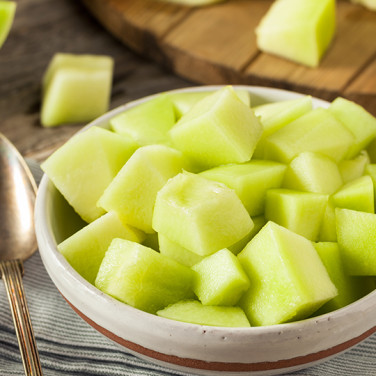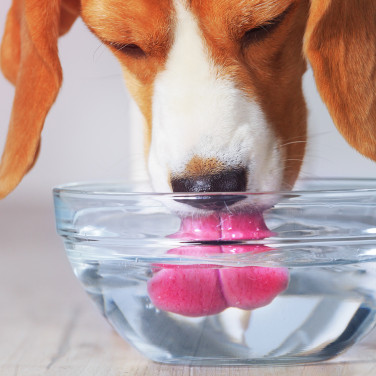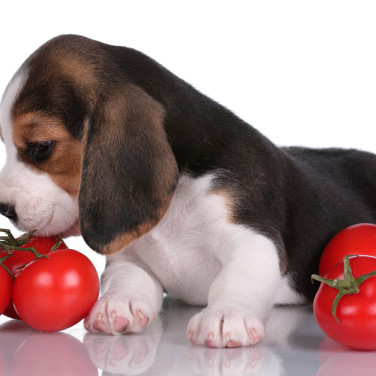FOOD
Can Dogs Eat Cauliflower? Benefits and Risks of Cauliflower for Dogs
페이지 정보
본문
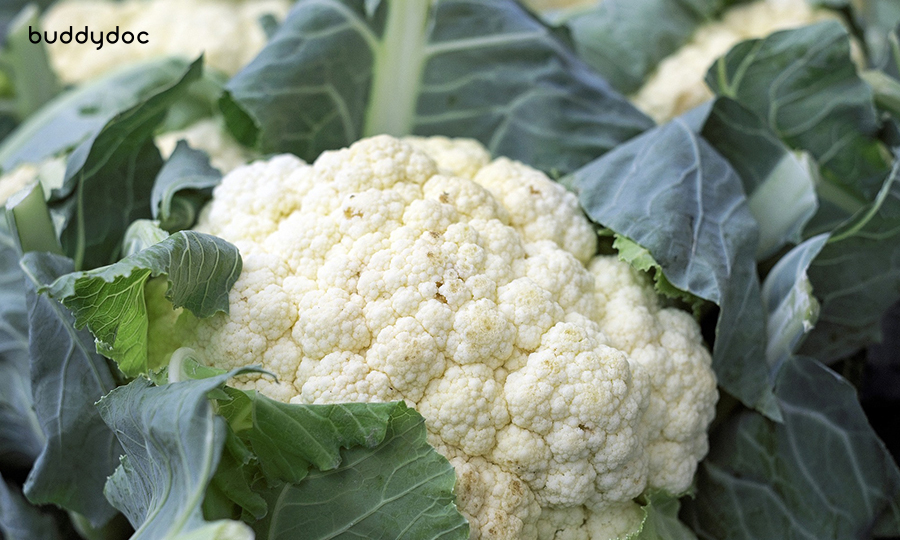
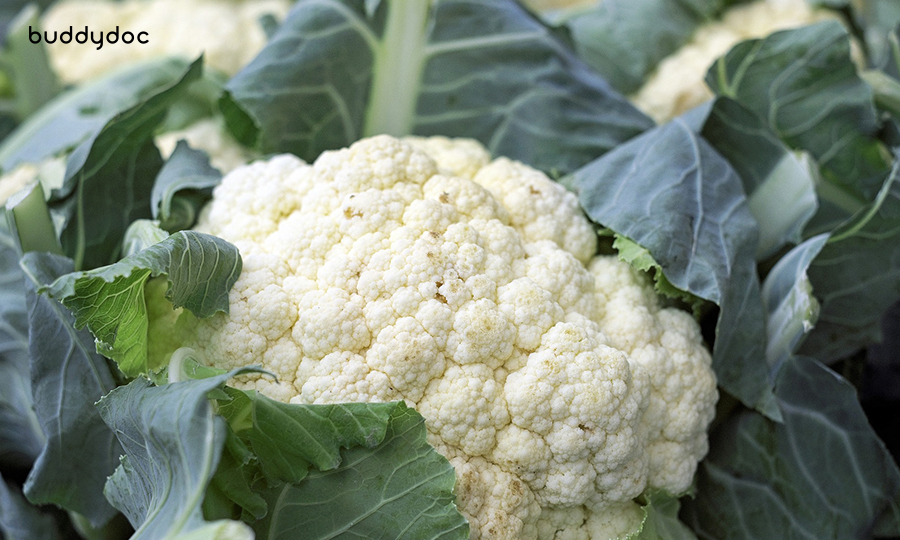
Can dogs eat cauliflower? YES!
Cauliflower is a safe and healthy vegetable for dogs to eat. It is a good source of fiber, vitamins K, vitamin C, calcium, potassium, and folate, which can support their overall health, including vision, blood, liver, muscles, and immune system. With its rich antioxidants, cauliflower can strengthen your dog's immunity and help prevent obesity as it is low in calories and keeps your dog feeling full for a long time. Since no part of cauliflower is toxic to canines, it can make a crunchy occasional treat.
Nutritional facts of cauliflower for dogs
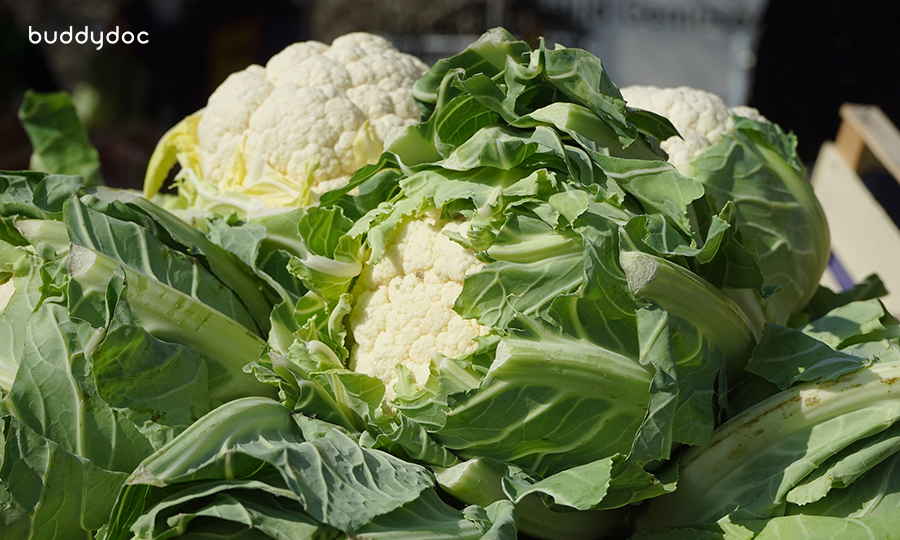
Cauliflower is safe and non-toxic for dogs and can provide health benefits when given in moderation. This veggie is rich in fiber, vitamins, minerals, and other nutrients that can improve digestive health and lower cholesterol levels. In addition to these benefits, the low calories and fiber content makes this vegetable a great snack for dogs trying to manage or lose weight. While cauliflower shouldn't be a part of your dog's daily diet, offering it a few times a week can be beneficial.
Main nutritional benefits of cauliflower for dogs
-
Fiber
Cauliflower is rich in fiber, which helps to keep your dog's digestive system healthy and aid with bowel movements.
-
Vitamin A
Vitamin A boosts your dog's immune system and provides anti-inflammatory benefits.
-
Vitamin C
Vitamin C is an antioxidant that helps protect your dog's immune system by fighting free radicals that cause oxidative cell damage.
-
Vitamin K
This fat-soluble vitamin is effective in reducing the risk of heart disease by helping blood clot and regulating blood calcium levels.
-
Potassium
Potassium helps your dog's body maintain proper fluid balance.
-
Calcium
Helps your dog's bone development. Adequate calcium intake can help prevent deteriorating health conditions such as pancreatic disease and hypocalcemia in dogs.
-
Folic acid
Folic acid is a water-soluble vitamin and is necessary for red blood cell production and DNA synthesis.
How to safely serve cauliflower to your dog
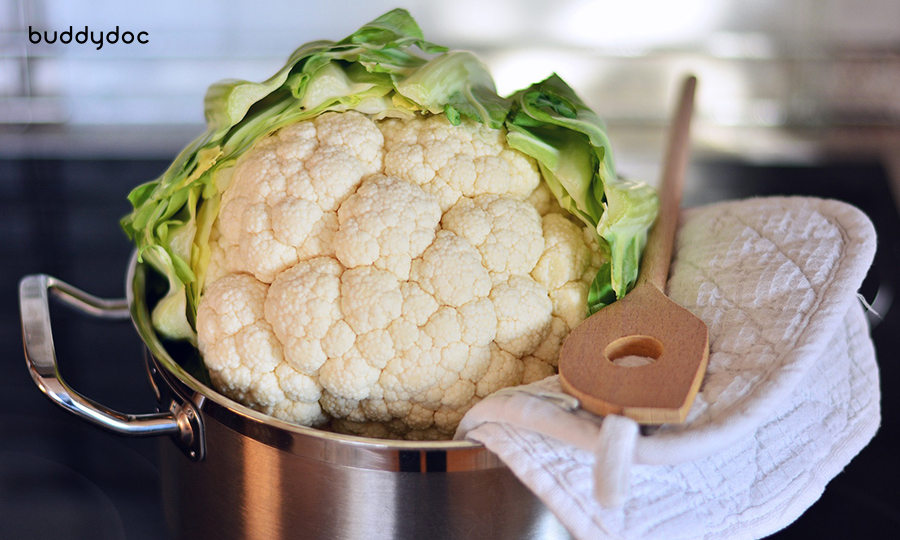
When it comes to feeding your dog cauliflower, there are a few things to keep in mind. It is generally considered safe to feed your dog both raw or cooked cauliflower. However, we recommend feeding cooked cauliflower to avoid the potential digestive symptoms associated with raw cauliflower. Cooked cauliflower is also easier on dogs with weaker stomachs. Out of all the cooking methods, steaming is the best because it retains the highest nutritional content. Remove the stalk before serving, as it can be a choking hazard and cause gastrointestinal issues due to its high fiber content. Chopping cauliflower into small, bite-size pieces can help further prevent choking hazards. Cauliflower should only be served plain for dogs as any additional seasoning or ingredients, such as salt, oil, garlic, and onions, are considered harmful to dogs.
How much cauliflower should I feed my dog?
A good rule of thumb for all treats given to dogs is the snacks should never exceed more than 10% of their daily recommended calorie intake. Cauliflower, much like its relative broccoli, has high amounts of fiber and can cause digestive issues if fed in excess. Always start with a small amount, and gradually increase the amount up to 2-3 small bite-sized pieces for small dogs and a handful of small bite-sized pieces for larger dogs.
Cautions to consider when feeding cauliflower to dogs
Raw cauliflower or big pieces of cooked cauliflower can be considered a choking hazard. Cut cauliflower into small ½ inch pieces and gradually introduce it to your dog's diet to prevent gastrointestinal discomfort. Too much cauliflower can cause gas and stomach discomfort due to its high fiber content. It is recommended to cook cauliflower before feeding it to your dog to avoid bacterial contamination and gastrointestinal issues. To be safe, consult with your veterinarian before adding cauliflower or any new food to your dog's diet.
Avoid feeding cauliflower to dogs with thyroid-related diseases
Cauliflower contains goiter-inducing agents that are common in members of the cabbage family. It is recommended to avoid feeding cauliflower to dogs with conditions such as hypothyroidism, hyperthyroidism, and autoimmune thyroiditis.
Feed cauliflower to your dog in moderation
While the health benefits of cauliflower are great for your dog, you do not want to overfeed this vegetable as well. If your dog has eaten too much cauliflower, they may exhibit the following symptoms:
- Loss of appetite
- Nausea
- Vomiting
- Diarrhea
- Abdominal pain
Can dogs have cauliflower dishes such as cauliflower cheese and cauliflower pizza?
It is best to avoid feeding your dog any dishes that contain harmful ingredients and seasonings to a pet’s digestive system. This includes ingredients such as garlic and onions, seasoning and oils, and dairy which can be hard for dogs to digest.
Beware of food allergies
When introducing new food to your puppy, it is recommended to test for any potential allergies by giving a small portion and monitoring for allergic reactions. If your puppy displays any symptoms of intolerance, it is important to stop feeding and consult a veterinarian immediately.
Signs of an allergic reaction to look out for:
- Skin problems: hives, facial swelling, itchiness
- Digestive problems: vomiting and diarrhea
- Shortness of breath
Curious if you can give your dog other foods besides cauliflower?
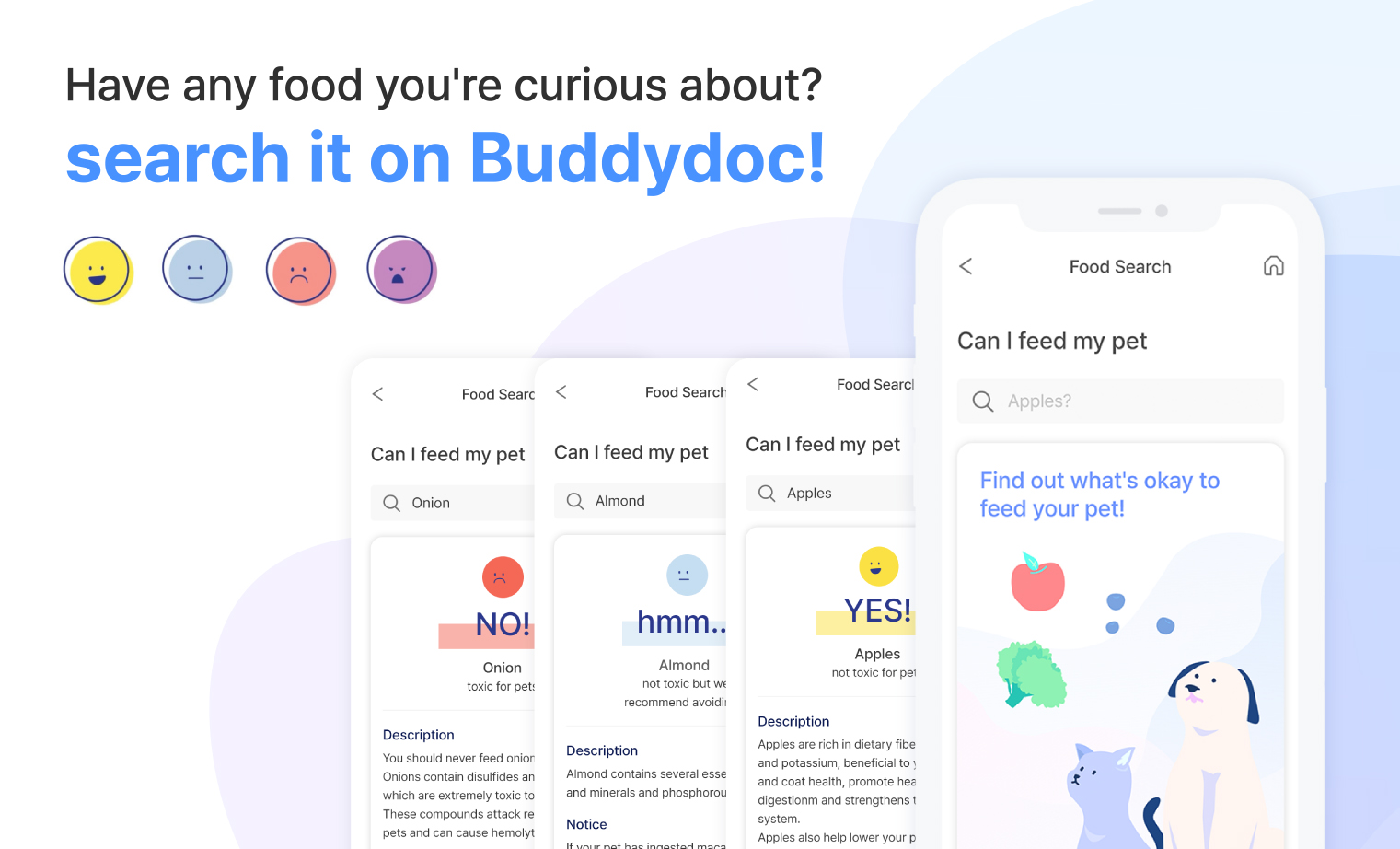
Does your dog also look up at you with those puppy dog eyes whenever you are snacking on something? You know foods like chocolates should not be shared with them but do you search the Internet every time if it’s okay to share a bite of whatever you are eating? The Buddydoc Food Dictionary provides information on hundreds of foods that we consume and informs you whether it is safe for them to consume and the nutritional benefits for your pet. If you're curious about other foods, try searching on Buddydoc!




